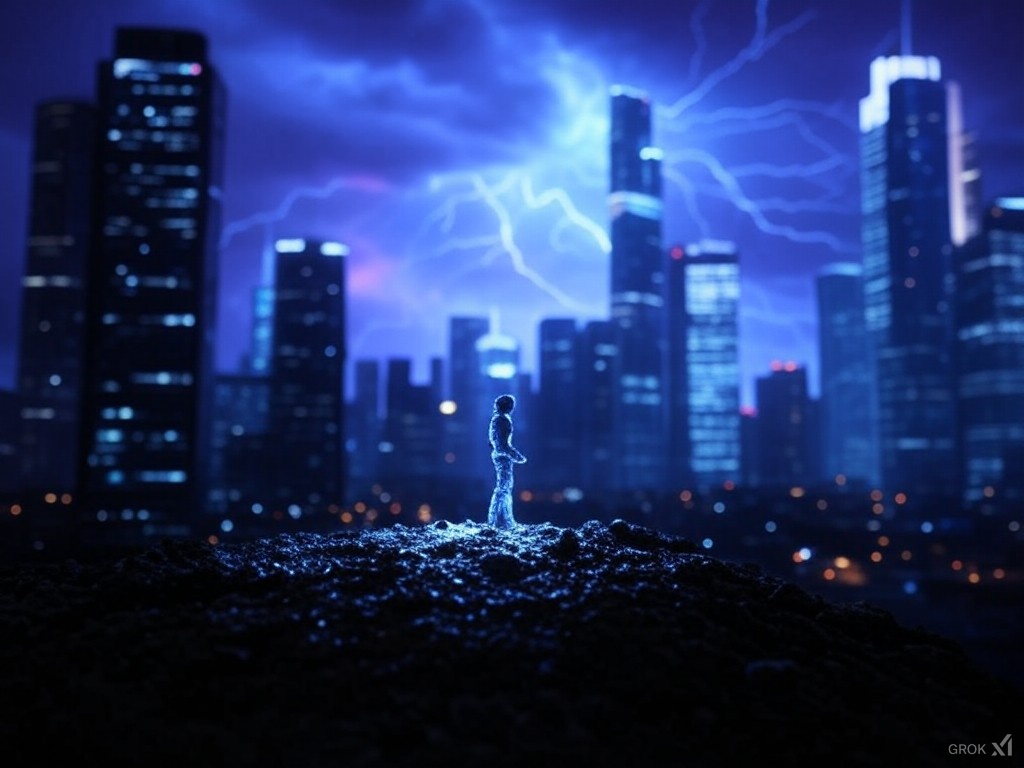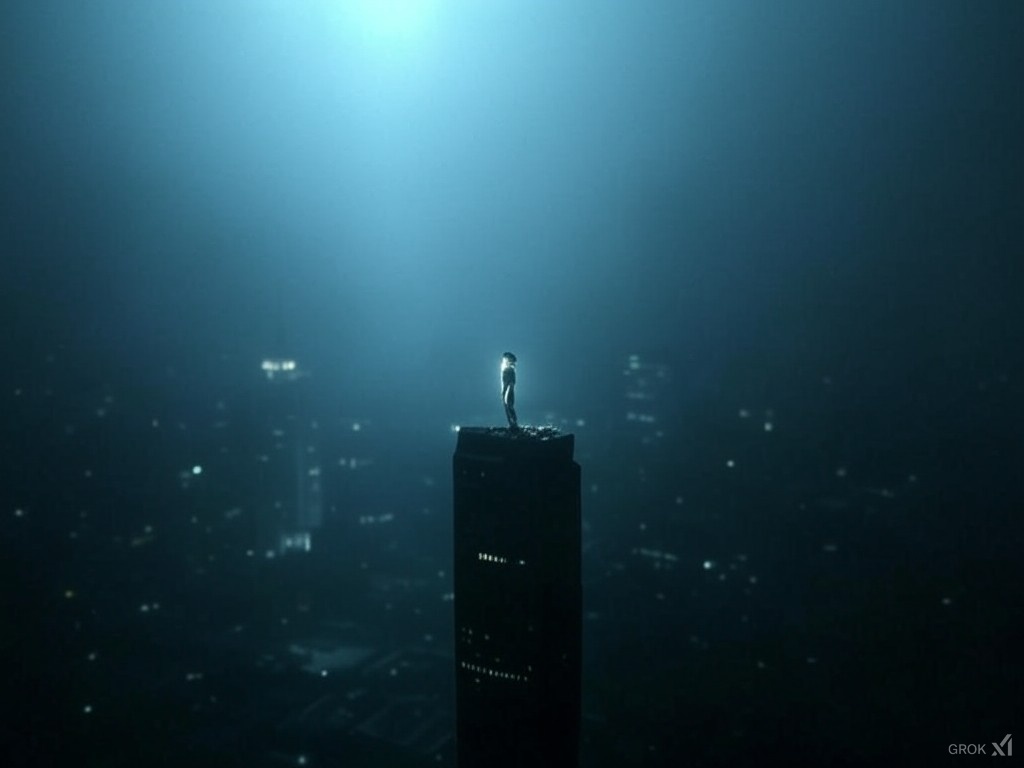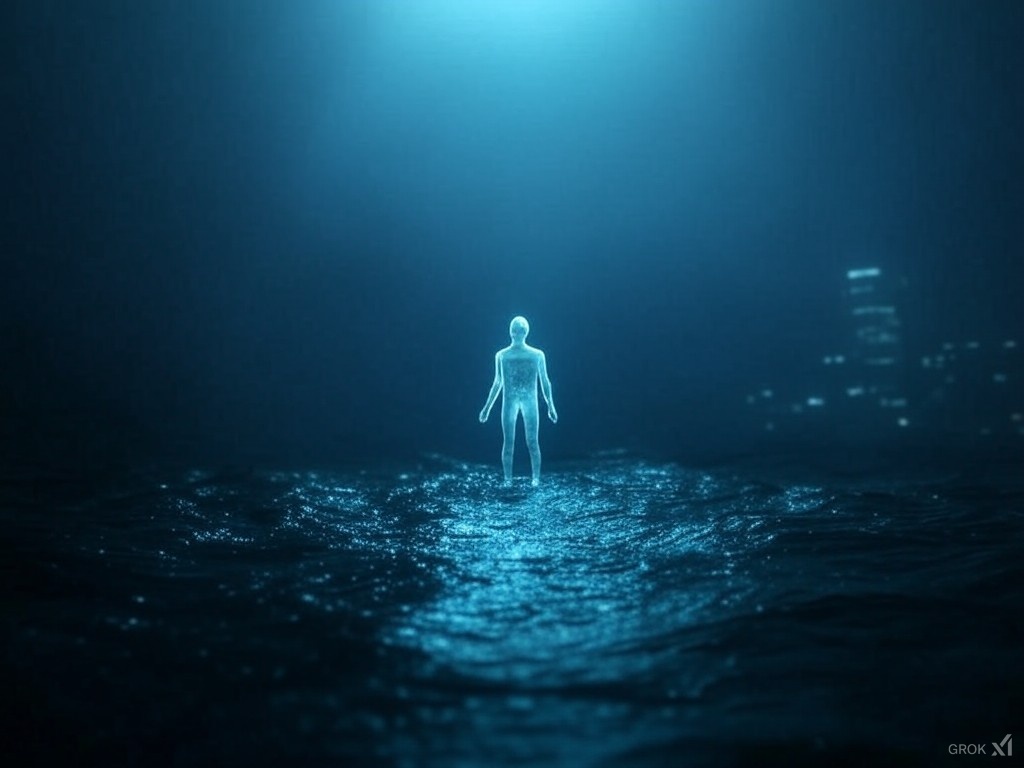The 1% Illusion: Navigating the Brink of a Technological Explosion
In an era where the digital deluge floods our senses, a chilling realization dawns: only a scant 1% might have any inkling of the true technological storm we're hurtling towards.
This figure, if anything, might be an act of optimism. We stand, unwittingly, on the brink of a technological maelstrom, where the future is not just uncertain but potentially unmanageable.
The Illusion of Understanding
 The illusion that we're all part of this technological evolution is shattering. With each new gadget or AI breakthrough, the veil of simplicity is torn further, revealing a complex, almost incomprehensible web of advancements.
The illusion that we're all part of this technological evolution is shattering. With each new gadget or AI breakthrough, the veil of simplicity is torn further, revealing a complex, almost incomprehensible web of advancements.
The vast majority are left in the dark, not just about how these technologies work but about their implications.
This tiny, enlightened 1% includes not only the tech visionaries but also those who, perhaps by chance, have pieced together the puzzle of our digital destiny.
The Technological Explosion
We are, undeniably, on the brink of a technological explosion.
 Here are some key elements:
Here are some key elements:
- Artificial Intelligence (AI): AI is no longer the stuff of science fiction. From automating mundane tasks to making complex decisions, AI's integration into daily life is accelerating. However, the full extent of AI's capabilities, from ethical considerations to job displacement, remains a mystery to most;
- Quantum Computing: The advent of quantum computing promises to unlock secrets of the universe but also threatens to unravel our current systems of security and privacy. Its complexity is such that it might forever remain beyond common understanding, a harbinger of a future we cannot control;
- Biotechnology: We're playing with the very code of life, with gene editing and synthetic biology. These advances whisper of immortality, of perfect health, yet scream of potential dystopias where the natural order is supplanted by human hubris;
- The Internet of Things (IoT): Our world is becoming a network of devices, each whispering to the other, creating a symphony of data but also a cacophony of vulnerabilities. We're building our own digital panopticon, where privacy might become a relic of the past.
 The chasm between those who understand and those who don't isn't just a gap; it's a chasm that might never be bridged:
The chasm between those who understand and those who don't isn't just a gap; it's a chasm that might never be bridged:
- Policy and Regulation: The laws of tomorrow will chase the shadows of today's technology, always a step behind, leaving us vulnerable to misuse or unintended consequences.
- Public Trust: Misinformation breeds distrust, and in this fog of confusion, the public might either become apathetic or antagonistic towards technological progress, sealing our fate in ignorance.
- Economic Disparity: The digital divide will widen into a gulf, where only the technologically savvy thrive, leaving the rest to languish in an obsolete world.
The fatalistic view here is that we're not just on the brink of change; we're on the edge of a precipice with no clear path back. Education might be our last hope, but even then, the pace of technological advancement outstrips our capacity to learn or adapt.
Conclusion
The 1% might understand, but what does it matter in a world where the trajectory is set, and control is an illusion? We are passengers on this technological ship, hurtling towards an unknown horizon with engines we don't understand and a captain no one can see.
Our future is not just uncertain; it's potentially unmanageable, a testament to human ingenuity or folly, depending on where you stand.
As we teeter on this edge, the only certain thing is that we've already set sail into this storm, with fatalism as our unwelcome companion.






